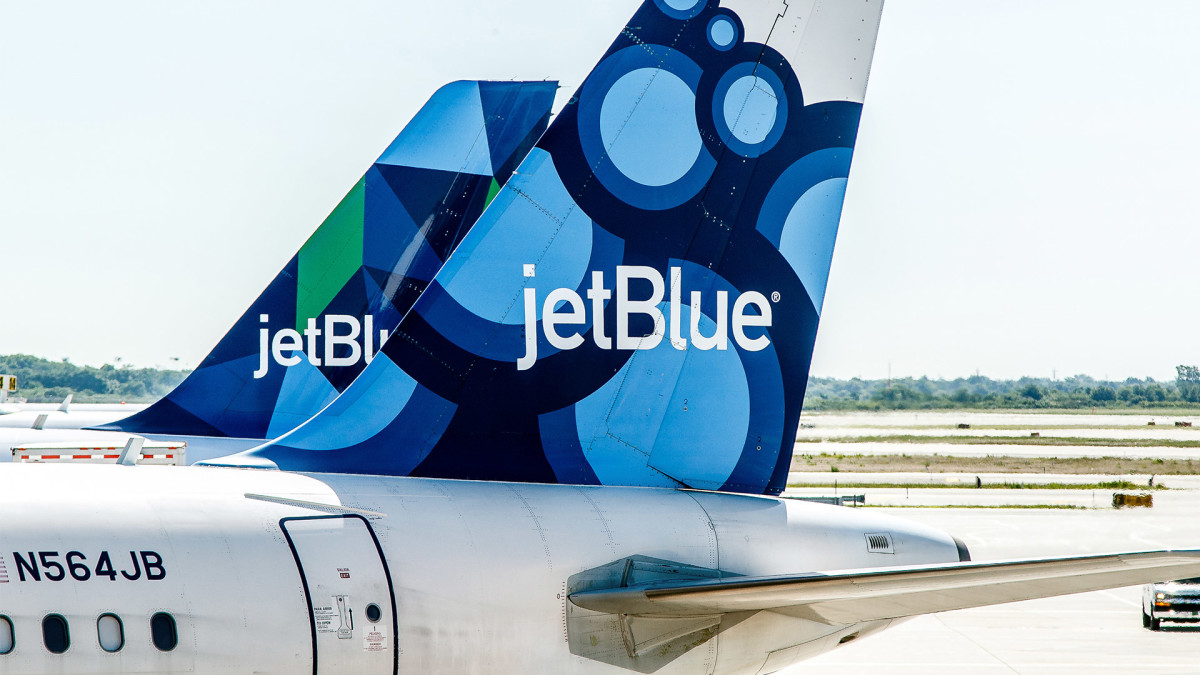
At the moment, the U.S. aviation world is closely following the arguments being made against JetBlue JBLU in one of the biggest antitrust lawsuits in years.
Led by the Department of Justice and six states, the complaint seeks to block the the New York-based airline's $3.6 billion bid to buy the low-cost carrier Spirit SAVE on grounds that it would create an anticompetitive environment and leave consumers with few options but to accept whatever prices JetBlue chooses to set. Over the summer, documents also emerged showing plans to raise Spirit prices by as much as 40% following the acquisition.
Related: This airline would benefit from the Spirit/JetBlue merger
With trial beginning last week at the U.S. District Court for the District of Massachusetts and expected to go on until Dec. 5, litigators argued that the JetBlue-Spirit merger would make it the fifth-largest airline in the country and create an anticompetitive environment.
JetBlue CEO hits back at claim that airline eventually wants to buy Alaska
As first reported by the Points Guy, one of the slides in a presentation shown in court as testimony alleged that at one point JetBlue CEO Robin Hayes said that "Spirit is the next natural step in our longer-term goal to pursue" Alaska Airlines ALK.
More Travel:
- A new travel term is taking over the internet (and reaching airlines and hotels)
- The 10 best airline stocks to buy now
- Airlines see a new kind of traveler at the front of the plane
During the first two days of testimony, Hayes said that the airline had pursued acquisitions of several smaller airlines in the 2010s as part of its efforts to grow its national presence. In 2016, it famously lost a bid to buy Virgin America after Alaska Airlines swooped in with an offer of $57 per share or $2.6 billion after the former went public.
Hayes denied the slide alleging that he expressed interest in eventually taking over Alaska Airlines and testified that JetBlue never initiated such discussions. He also testified that JetBlue has no plans to pursue further acquisitions if the Spirit merger is permitted to go forward.
The purchase, Hayes said further in court, is meant to place JetBlue on part with the big four airlines that currently control 80% of the U.S. market. This refers to Delta Air Lines DAL, American Airlines AAL, United Airlines UAL and Southwest LUV.
JetBlue CEO claims 'organic growth' is not possible for those wanting to become major airline
"It is a very tall order to compete with them," Hayes said in court on Nov. 6. "The top four airlines account for about 80% of US ticket revenue. We've spent 20 years now carving out 5%” of the market.
He further argued that purchasing smaller airlines is the only viable way for JetBlue to develop a national presence and grow as an airline as any other major airline would also "never, ever get to the size they are based on organic growth."
The lengthy court case will hear multiple arguments about how a potential merger between JetBlue and Spirit will affect the market. To assuage DoJ concerns that it is creating an anticompetitive environment and tip the scales in favor of the merger, JetBlue had previously agreed to sell its assets at Boston and Newark Liberty International Airport to Nevada-based low-cost carrier Allegiant as well as dedicate five gates currently being used by Spirit in Fort Lauderdale to the same airline.







